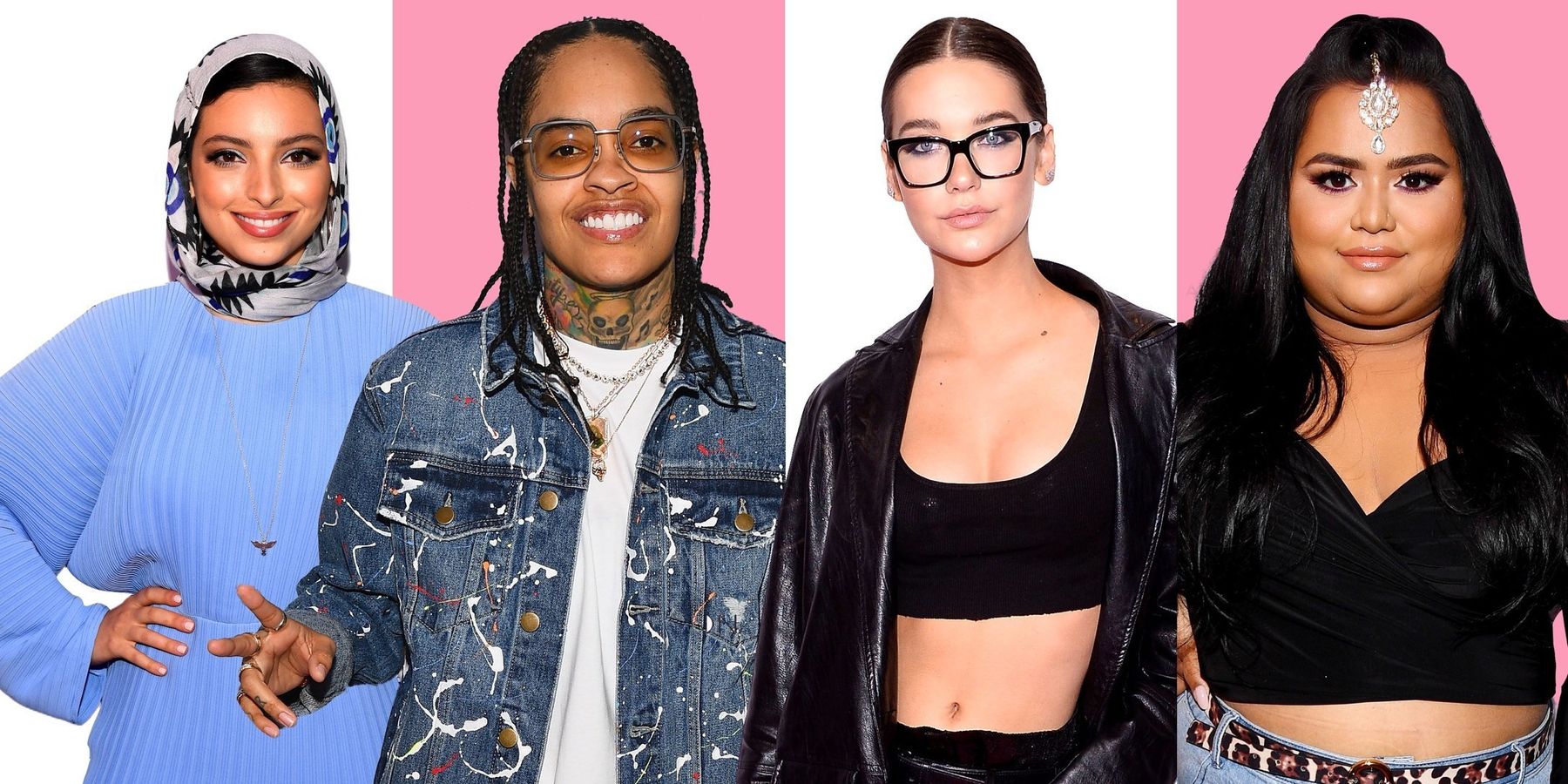
Beautycon NYC, the annual beauty convention that attracts thousands of beauty fanatics from across the country, opened last week to a large crowd at the Javits Centre. Amidst the numerous brands showcasing their products, were star appearances by the likes of Regina Hall, Issa Rae, Rick Ross, and Amanda Steele.
The biggest highlight of the two-day event, however, was an appearance by Cardi B. Although the rapper arrived a few hours later than her scheduled time (much to the dismay of the eagerly waiting fans), she quickly made up for it with an incredible performance, followed by a fireside chat moderated by Beautycon CEO Moj Mahdara.
Related | PAPER People: Moj Mahdara
While candidly dishing financial advice about managing money and equal pay for women, Cardi B said, "Do you know how many people's bills I pay? Like 10. Always take a business class because what you go to college for might not be what you end up pursuing. I get paid equally because as I came up I've seen male rappers and we would do shows together and I asked, 'Why is this man making more money than me?'"
Over the past five years, Beautycon has evolved into an integral platform for not just beauty brands looking to expand their reach, but also to address issues including diversity and inclusivity in the industry. This season of the convention was no different in that sense, and included a number of panels focused on conversations about toxic masculinity, representation, and activism.
PAPER caught up with four dynamic women at Beautycon, who reflect on the rapidly evolving industry, the current state of representation, and rigid beauty standards.
Amanda Steele (Actress, Blogger, and Model)
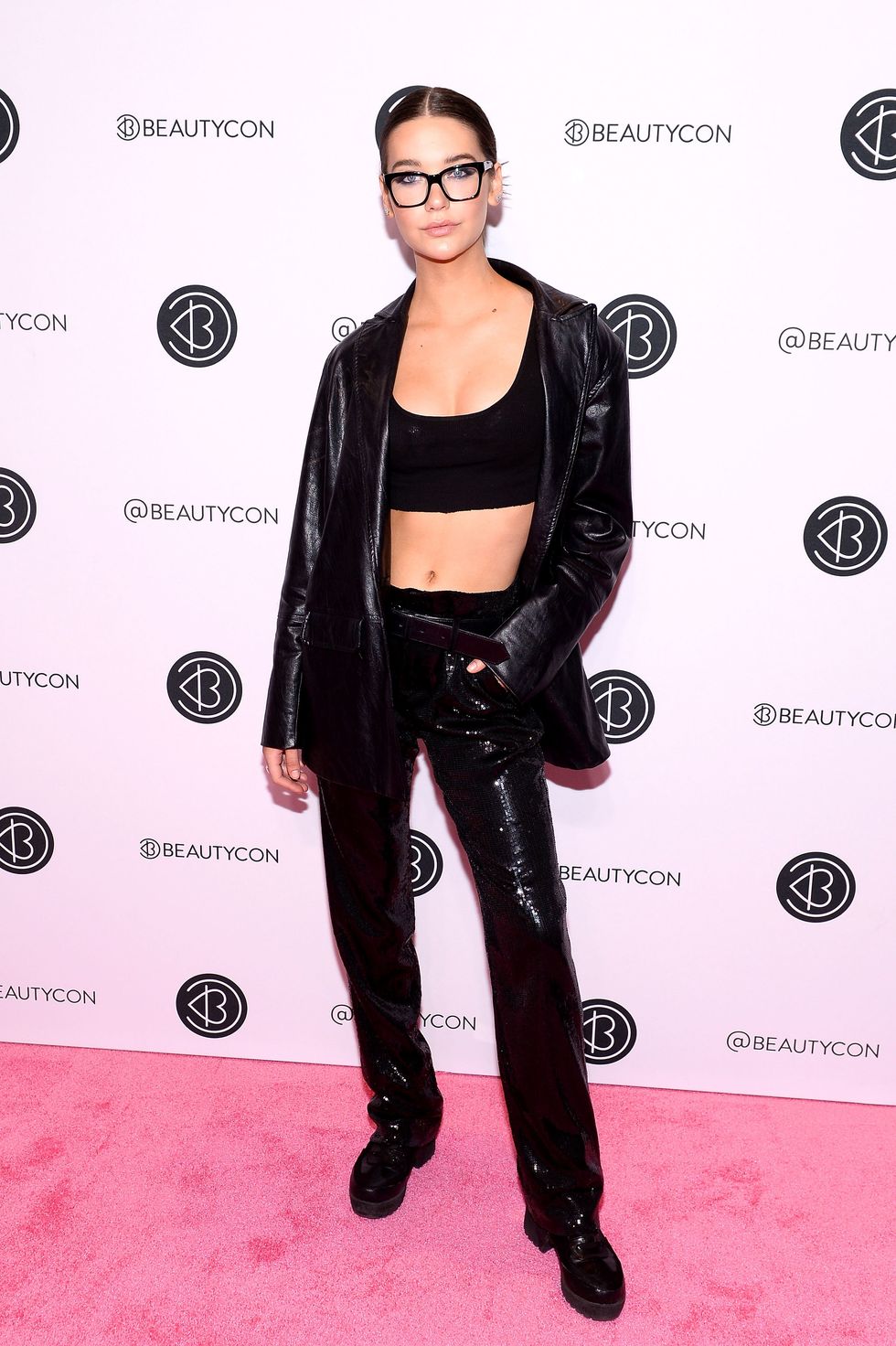
On Beautycon:
I always loved connecting with people online who did what I did, and had the same passions as me, so I wanted to be a part of any conversation that included that. Everything was so great. I've had great times with the event.
On inclusivity and representation:
I think we're going in the right direction, and whenever brands aren't as inclusive, we have millions of people that will call them out for it. That's a good spot to be in. A lot times there's just an older white guy at the top that makes the final decisions about everything, so there is always going to be that problem of addressing these issues and telling that person at the top that this is what we need to focus on. In that respect, the industry is not as good as we're hoping for it to be. But we're definitely moving in the right direction and this whole audience will not be silenced. People can't avoid it, it's only going to keep getting better.
On dismantling beauty standards:
Shade ranges are really big right now. It's not acceptable to only have certain colors available for people because that's not real life. What's great about makeup is that anyone can do it, and it makes people — who maybe don't fit in normally — feel like they belong to a certain place. So we should be able to have access to a range of shades and products for different types of skin. And I mean that in terms of the people we see in the ads promoting the foundations too. We should be able to see girls, boys, and non-binary people from all backgrounds wearing makeup. The same girl can't represent everyone that wears makeup. That's the farthest thing from the truth.
"What's great about makeup is that anyone can do it, and it makes people — who maybe don't fit in normally — feel like they belong to a certain place."
On being held back:
Definitely, women are suppressed. I don't have a normal job or a normal life as most other women might, so I don't have those kind of issues. As women, we can never get it right for other people. Either we're wearing too much makeup or look tired, or you're not presentable. People don't even know what they want from us.
On pushing for change:
I could be suppressed as well and people can make me feel that type of way, but I really do walk into every situation with confidence. I'm just going to demand respect in every situation and sure, everyone is going to judge you but just trust in yourself and love who you are. When you have that energy, no one is going to take that away from you.
Favorite brands and products:
I love the Charlotte Tilbury bronzer and the Tarte Shape Tape concealer. Aside from that, I've also been using Dior foundation, Laura Mercier setting powder and concealers.
Follow Amanda Steele on Instagram (@amandasteele).
Siya (Singer and Songwriter)
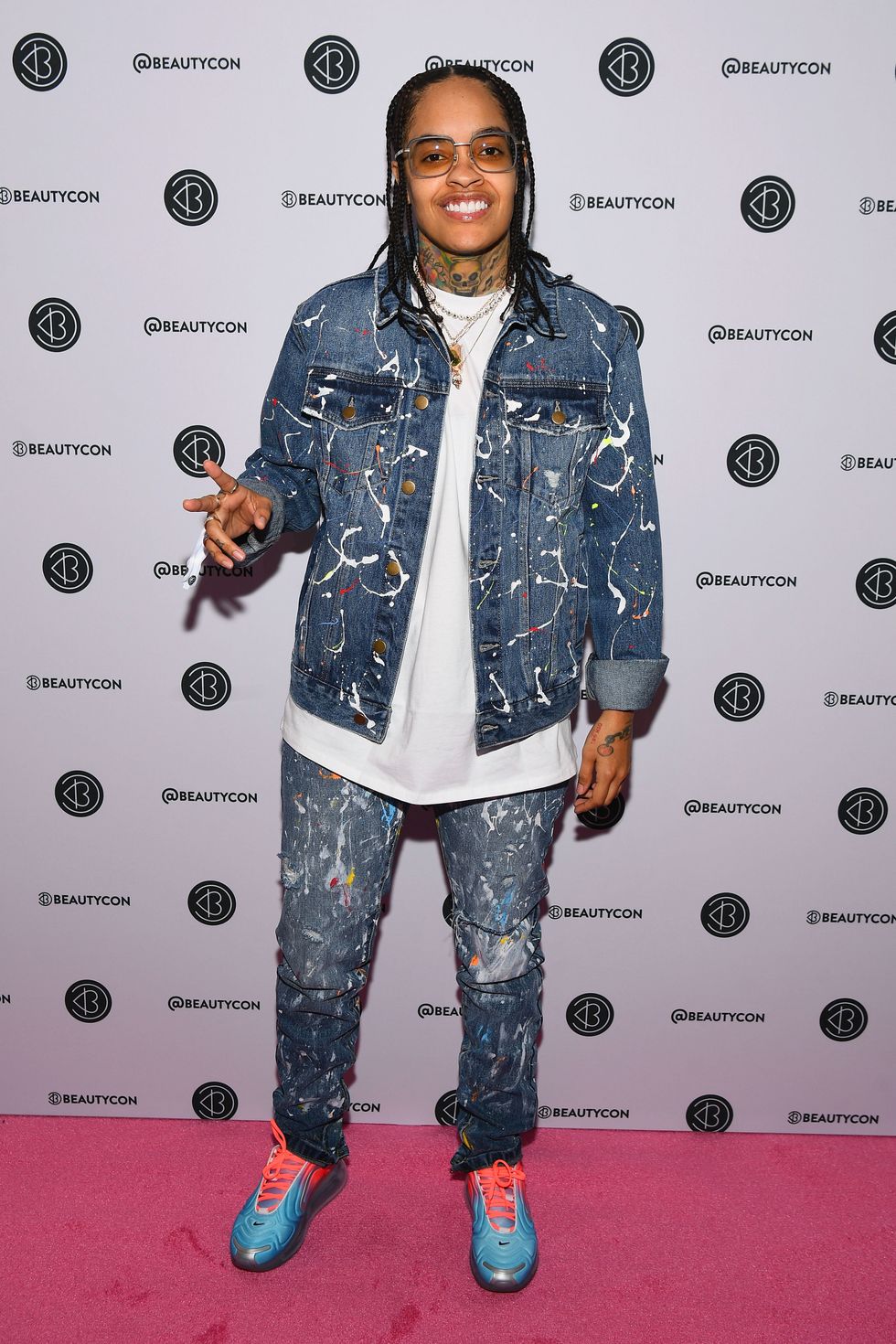
On Beautycon:
When Moj [Mahdara] came to me I was like, of course, why not? It's all about female empowerment. I love what she does as part of Beautycon; I love coming here seeing a bunch of women unite. I think it's dope, even if it is makeup and all this stuff that I don't use. It's still cool.
On inclusivity and representation:
I feel like it's kind of half-marketing and half-actual effort, but I think now a lot more women are being vocal. So it's pushing the needle in the right direction. So yeah, I feel like it's changing.
On dismantling beauty standards:
I feel like it shouldn't even boil down to beauty or your appearance, especially in the workplace. It should be about what you do, and how well you can do your job. A lot of women don't even get paid the way they should get paid, in such a male dominated industry. Male domination is all over the world and it's time to change that.
"Male domination is all over the world and it's time to change that."
On pushing for change:
We're doing it right now. Women are stepping forward, women are talking about it, they are not backing down. It's happening in front of everyone's eyes so they can't ignore it.
Favorite brands and products:
I love skincare. I mean, like the good stuff for your face and body. I like tea tree oil. But I think today I'm going to find a lot of brands and start trying stuff. I guess I have to find a new brand to fall in love with today. I need to find some hair products - that's what I'm gonna go look for.
Follow Siya on Instagram (@siya).
Noor Tagouri (Activist, Journalist, and Motivational Speaker)
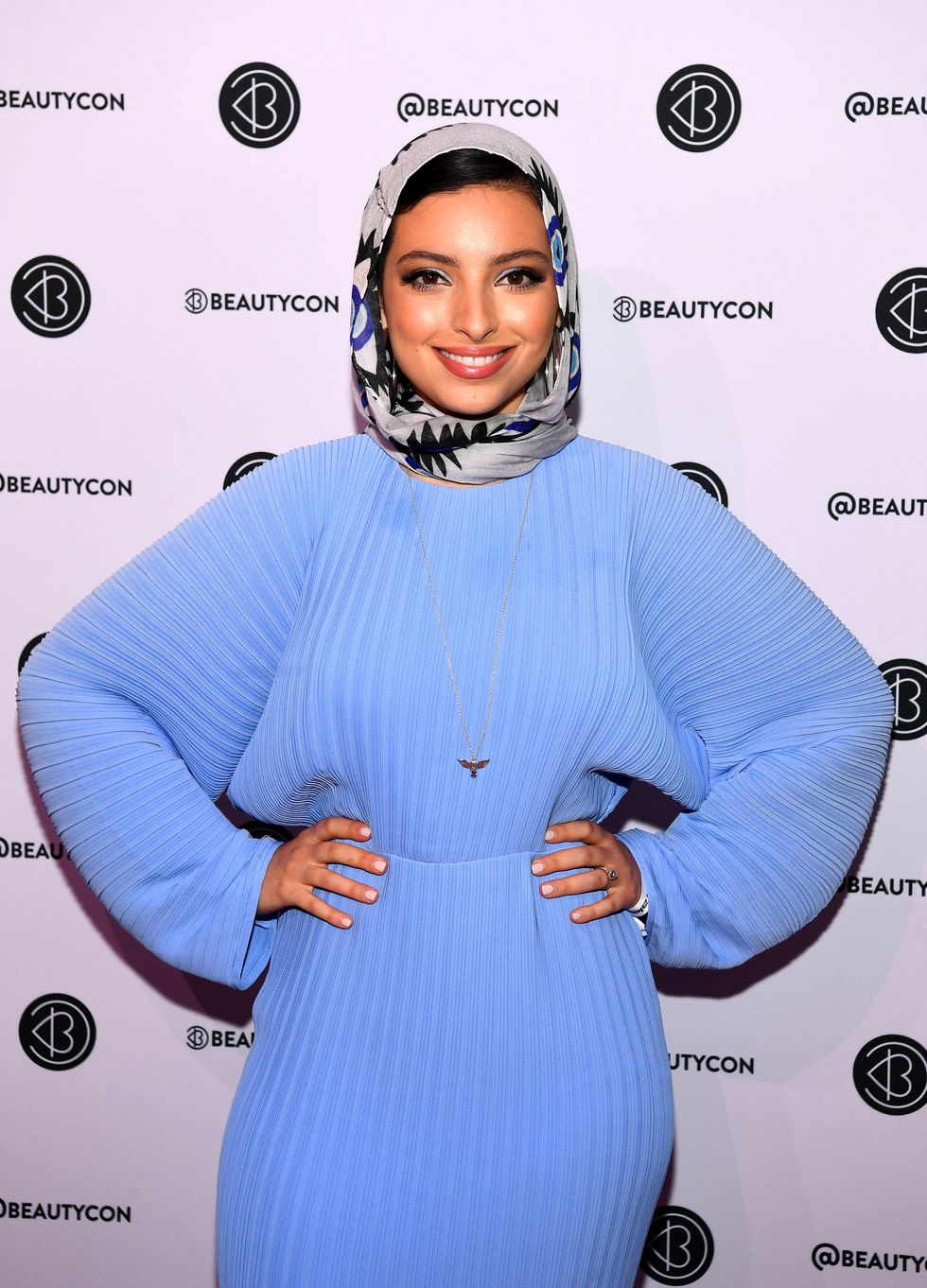
On Beautycon:
I think what Moj [Mahdara] is doing is really incredible. She's truly redefining beauty and helping to be a part of that movement, and I never would've dreamed of seeing something like this before. I just love her message so much and I think her work is so incredible. I was honored to be a part of it.
On inclusivity and representation:
I think that parallels how I feel about about diversity and inclusion; there's a difference between the two. There's diversity across campaigns, but inclusion is about having a seat at the table. There are some brands where women do have a seat at the table and then there's some people who're doing it for marketing. At the end of the day we want to be able to see ourselves represented properly, and I think that people can tell when it's authentic and genuine and when it's not.
"There's a difference between [diversity and inclusion]: There's diversity across campaigns, but inclusion is about having a seat at the table."
On dismantling beauty standards:
What bothered me the most were really just the original beauty standards from when I was growing up. I think it was always that you had to be tall, skinny, blonde, and blue eyed and that's what I grew up seeing. Not saying that that's not beautiful, of course but that was the standard that I saw because of what was represented in the media. Now I think we're changing that, and the spaces where that still exists, you can just choose not to partake, watch, or spend your money there.
On pushing for change:
We can bring about change by getting into those rooms and at the those tables. I think change happens when we're truly being inclusive by prioritizing it, being vocal about what we want and thinking about how we spend our dollars.
Follow Noor Tagouri on Instagram (@noor).
Nabela Noor (Influencer and Beauty Activist)
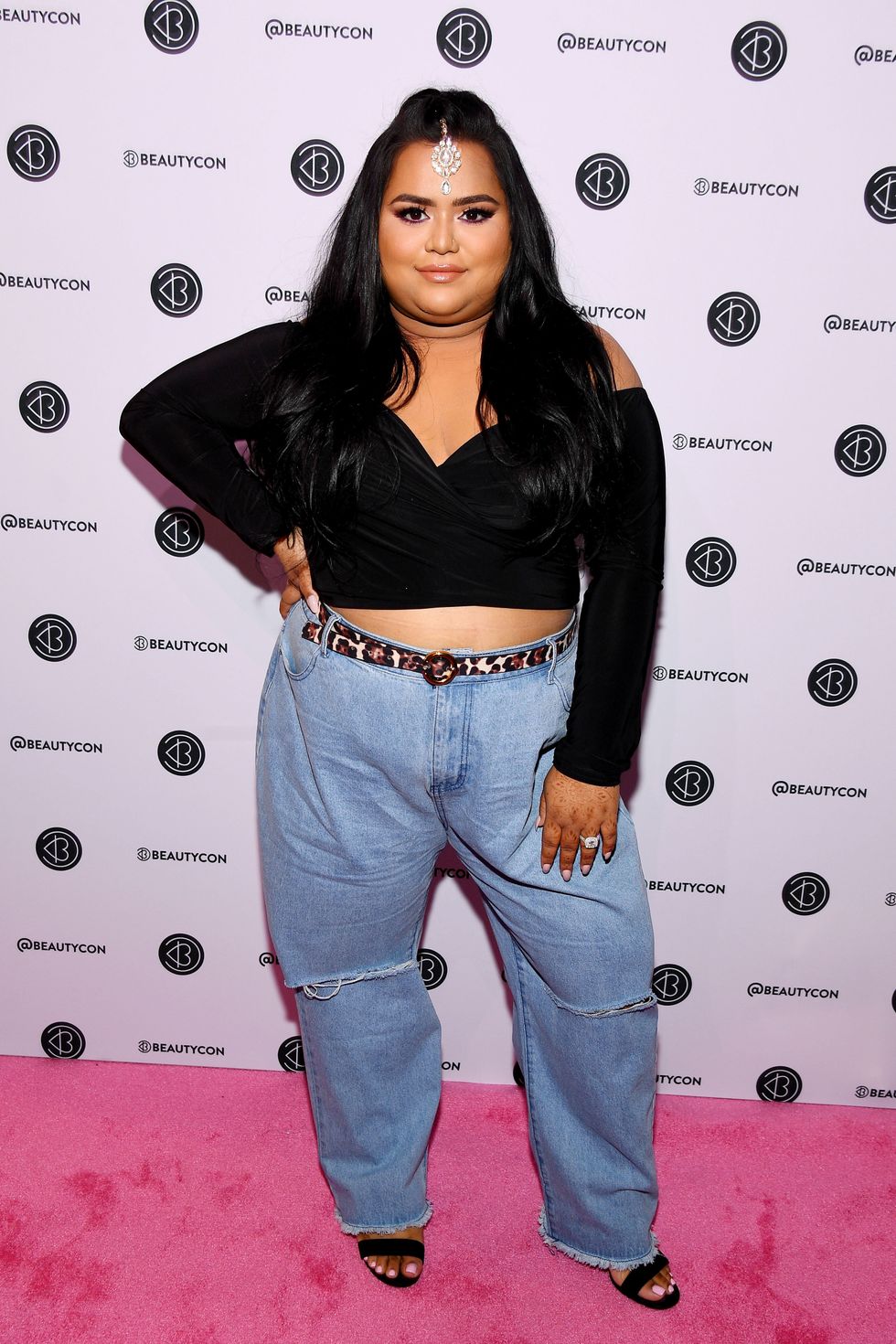
On Beautycon:
Whenever anybody wants to have important conversations about representation, diversity, or things that I'm passionate about, I want to be there and lend my voice in the best way possible. When Beautycon, and Dove asked for me to join their panel and talk about those things, to me it seemed like a no-brainer.
On inclusivity and representation:
I think that there are brands out there that are actually trying, and we have to applaud them for trying. Fenty Beauty is a brand that in its core believes in the power of representation and believes that we all deserve access. That's an example of how to do it right. There are, of course, a lot of beauty and fashion brands, where [representation] is a buzzword; It's a word to sell more things, it's not a word they actually believe in. I can tell when the imagery is still alienating people like me and bodies like mine. You can always tell when a brand or company is actually for you or if they're for the dollar. You'll feel it, you'll see it; it's going to be in the marketing; it's going to be in the approach and language; and it's going to be in the supply. There are a lot of brands out there — fashion brands particularly — that don't have my size. They don't want to welcome people like me, yet they'll use words like inclusive and diverse. You're using those words to serve you, not to serve the people.
On dismantling beauty standards:
In the world of body confidence, even in the plus size space, there's still a specific look that you're supposed to meet. So you're supposed to have a small face, but wide thighs, wider hips, and that hourglass figure. Even in the plus-size world, it's not truly reflective of everyone. It's still this curated, aesthetics-driven space. That can be really tough because when you're watching for plus-size people in imagery and campaigns, you notice that they're still cherry picking how they want plus-size figures to appear. That's still sending a harmful message to people. My biggest wish is that brands, companies, the entertainment industry, and anyone that has the opportunity to, can give people an accurate depiction of what the world looks like today. The average American woman is about a size 14, so where is she in our magazines, where is she in our movies, where is she on our runways, where is she? I don't feel like I see her anywhere. If anything, I feel like whenever I see a girl like me in the media they're represented as the butt of a joke, with their weight or their eating as the punchline. It's still very rare to see somebody like me in the fashion space and when I do, I try to support them and lend my voice but it's very tough. There's still a lot to do.
"Even in the plus-size world, it's still this curated, aesthetics-driven space."
On pushing for change:
Support individuals that you admire and that you feel are representative of the world we live in today; someone that is diverse, and that you want to put your dollar behind. We have the opportunity to uplift people and put our money in what we believe in. When your favorite person that you follow online launches something, support it. You have the opportunity to really shift the industry. That is how the industry will then follow and be like, 'Wait a second, this is what the people want and this is what we're giving them.' There's a difference here.
Favorite brands and products:
There are so many brands that I know and love that are doing it right and making effort and strides. I love both Fenty Beauty and Too Faced. In terms of fashion and clothing, I love Eloquii; they actually partnered with Beautycon this year so they have a really amazing line and collaboration. I feel like I have access with a brand like that, which is amazing. It's really nice when I can go shopping and have something that's trendy and cute and not just a piece of cloth because I'm a bigger size.
Follow Nabela Noor on Instagram (@nabela).
Photos via Getty